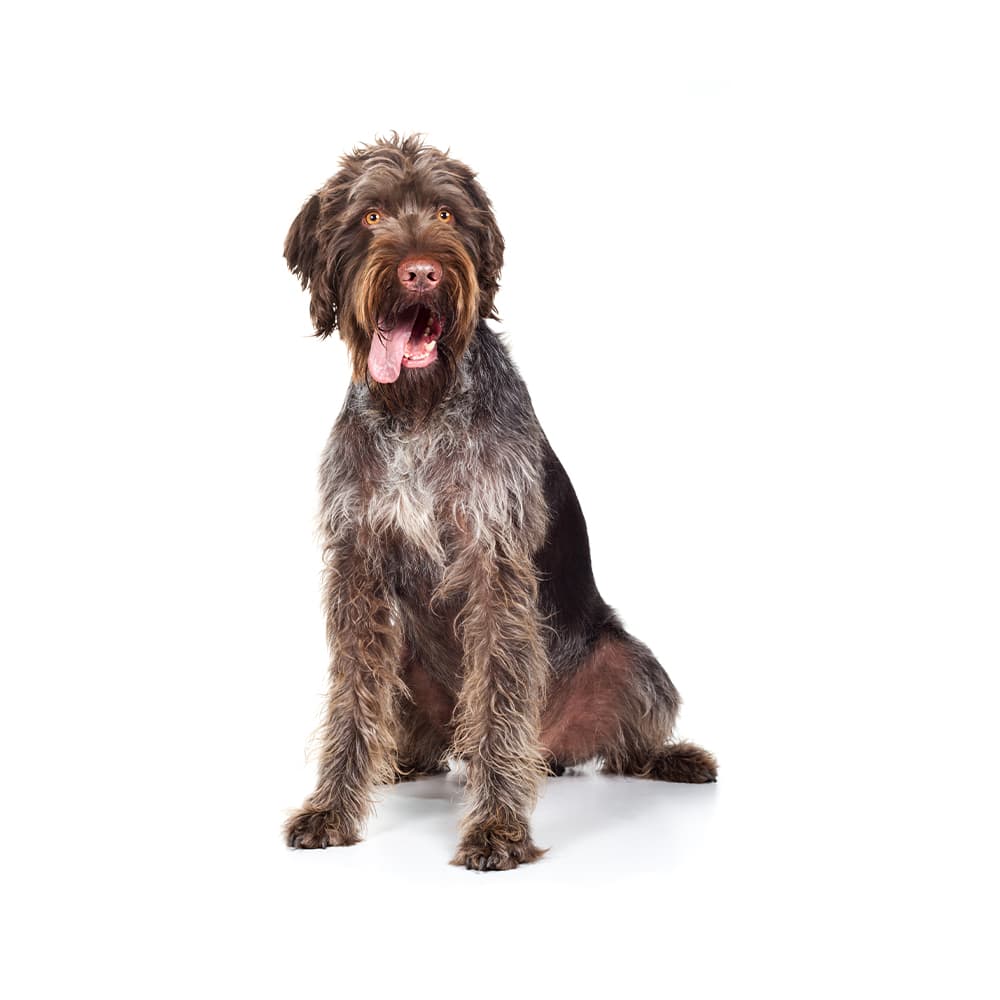Basepaws analyzes this breed as part of a group of other breeds.



Basepaws analyzes this breed as part of a group of other breeds.


Basepaws analyzes this breed as part of a group that also includes German Shorthaired Pointer, German Wirehaired Pointer.
Despite being distinct in characteristics and origin, some pairs or groups of breeds lack the number of genetic differences required to distinguish these populations from one another, particularly when only a subset of these differences are inherited by a mixed breed dog. As we continue to expand our breed database, we aim to increase the resolution of our ancestry algorithm such that differentiating between increasingly specific ancestral sources becomes possible.
The German Wirehaired Pointer is versatile, energetic, and intelligent, renowned for its hunting skills and its characteristic wire-haired coat. It was developed in Germany in the late 19th century. The breed was established as a hunting dog capable of performing multiple tasks like pointing, retrieving, and tracking game on both land and water. They are believed to have been created through selective breeding of the Griffon, Pudelpointer, and the German Shorthaired Pointer, along with other breeds. The coat of the German Wirehaired Pointer was the most important for breeders, they wanted their dog to have an all-terrain, and all-weather coat that would help them be effective in all types of environments ranging from tall grass, to water, to woods.
German Wirehaired Pointers can suffer from atopic dermatitis, atrioventricular heart block, brachygnathism, cataracts, elbow dysplasia, entropion, epidermolysis bullosa (junctional), exercise-induced collapse, Factor VII deficiency, Factor IX deficiency (hemophilia B), hip dysplasia, hypothyroidism, osteochondritis dissecans (shoulder), osteochondritis dissecans (stifle), patellar luxation, prognathism, retinal dysplasia, and von Willebrand disease (Type II). Their ears should be checked regularly for signs of infection. Hip, elbow, thyroid, and ophthalmologist evaluations are recommended along with cardiac exams. Genetic testing is recommended, including for the following additional conditions: hyperuricosoria, degenerative myelopathy, and progressive rod-cone degeneration.
The German Wirehaired Pointers are known for their intelligence, energy, and determination. They are loyal, affectionate, and good with children, but they can be reserved around strangers. This breed is active and requires regular exercise, mental stimulation, and interaction with their human companions. They excel in various dog sports including hunting, tracking, and agility.
German Wirehaired Pointers are excellent swimmers, thanks to their webbed feet.
They were one of the first breeds to be used as a "bomb dog" or a dog trained to find explosives.
The German Wirehaired Pointer has a unique beard and eyebrows, adding to their distinctive appearance. Their coat is water-repellent and protects them from cold temperatures, and their brows and beard help to protect their face and eyes from brambles and brush.
https://www.akc.org/dog-breeds/german-wirehaired-pointer/
https://www.fci.be/Nomenclature/Standards/098g07-en.pdf
https://www.ukcdogs.com/german-wirehaired-pointe
https://www.petmd.com/dog/breeds/c_dg_german_wirehaired_pointer
Recommended by top vets with decades of experience
21 breeds
64 genetic health markers
50 genetic trait markers
